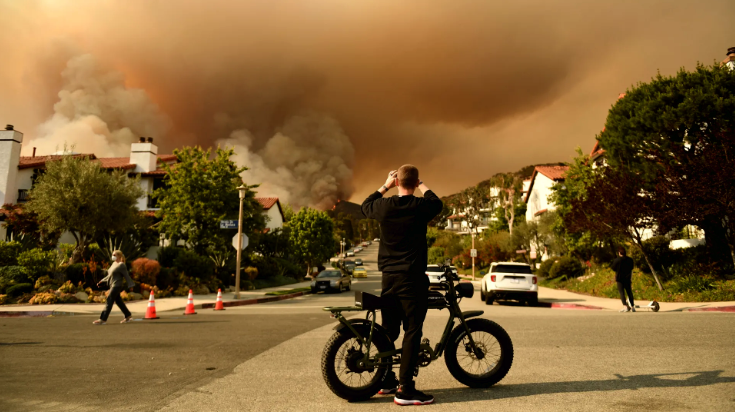Record 64M Americans Face Daily Spikes in Deadly Particle Pollution
According to the American Lung Association's (ALA) "State of the Air" report released Wednesday, unhealthy air pollution levels from 2019-2021 affected more than one-third of US residents — 17.6M fewer people than the ALA's last report.

Facts
- According to the American Lung Association's (ALA) "State of the Air" report released Wednesday, unhealthy air pollution levels from 2019-2021 affected more than one-third of US residents — 17.6M fewer people than the ALA's last report.1
- With nearly 120M people facing unhealthy air quality, 54% are people of color, who are 64% more likely than White people to live in a county with a failing grade for at least one of the ALA's air quality measures, which are ground-level ozone air pollution, annual particle pollution, and short-term spikes in particle pollution.2
- While around 25% more counties received a grade of A for lower levels of ozone pollution, the report said more than 100M people live in counties that get an F for ozone smog, with 10 of the 25 most-polluted cities in California. New York City, Chicago, and Hartford were the only three listed east of the Mississippi River.3
- While progress has been made regarding the overall number of people facing unhealthy air quality, a record high of 63.7M people face "daily spikes in deadly particle pollution," which is "the most ever reported under the current national standard."1
- Alongside racial differences, more than 18M residents in Western states live in counties with three failing grades, and the worst 25 counties for short-term particle pollution were all located in the Western US.2
- Particle pollution is a mix of solid and liquid droplets that come in the form of dirt, dust, soot, or smoke. They are produced by coal- and natural gas-fired power plants as well as cars, agriculture, unpaved roads, construction sites, and wildfires. These particles can reach the lungs and bloodstream and cause illnesses such as cancer, strokes, or heart attacks.3
Sources: 1Axios, 2Benzinga, and 3CNN.
Narratives
- Left narrative, as provided by Forbes. Climate change and air pollution have long proven detrimental to the nation as a whole and to people of color more specifically. The only difference is that today, reports like this provide concrete evidence of how these communities endure disproportionately higher rates of negative health effects. While both California and the Biden admin. are working to mitigate these risks at the state and national levels, more must be done to transition the US away from fossil fuels and toward clean energy sources.
- Right narrative, as provided by AMAC. While liberal elites pat themselves on the back for fighting racism and climate change simultaneously, they, of course, will be free from the negative consequences their policies will have on the poor — particularly people of color. Investing in natural gas and nuclear energy could also help the US reach its 90% renewable electric grid goal while saving people money, but the left is more concerned with pursuing its power-based ideology. When these policies fail, they will blame racism again and continue gaslighting Americans into voting Democrat.






